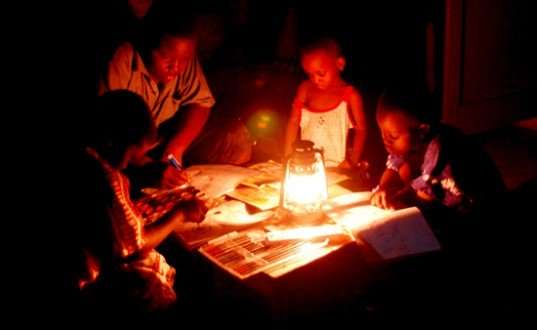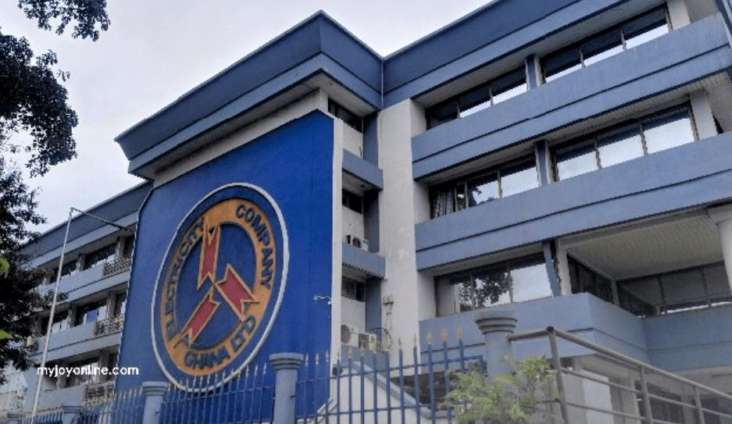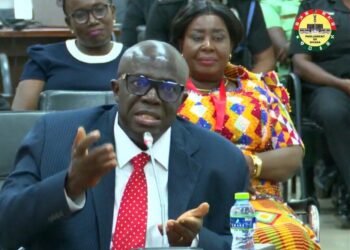An energy expert and senior researcher at the Chamber of Petroleum Consumers (COPEC – GH), Sampson Addae, has urged the Ministry of Energy to instruct the Electricity Company of Ghana to avoid excessive spending.
He linked part of the country’s intermittent power outages to the company’s overstaffing.
In an interview with the Vaultz Media, Addae explained that the country’s current power crisis stems from mismanagement within the Electricity Company of Ghana.
He highlighted that in past years, the ECG incurred unnecessary expenses without regard for their impact.
He accused the Electricity Company of buying equipment that was not immediately needed, causing financial strain, yet continuing to allocate funds to such equipment despite its limited relevance at the time.
“The whole issue is a result of the mismanagement that has happened at ECG in the previous years. Because it got to a point that EGC could not even pay according to the KAR power mechanism systems. There were so many procurements that the company didn’t need; they will not even need some in five years.
“The ECG was also overstaffed, and they were spending the money on frivolous things that were not critical or crucial for us to be paying the IPPs, so some of the things led us to where we are today.”
Sampson Addae
His remarks follow the sector minister’s urgent appeal for funds to purchase fuel for power generation, warning of a possible nationwide blackout.
The minister attributed the issue to the Electricity Company of Ghana’s poor revenue collection, which has resulted in a monthly deficit exceeding Ghs. 2 billion.

Addae explained that some of the blackouts are localized, caused by worn-out transmission cables.
“This is one of the reasons why recovering the missing containers is crucial, as they contain cables and gridlines that need replacement since many are old and must be changed. Additionally, transformers in several areas are overloaded.”
Sampson Addae
He added that timely repairs to the power cables could have prevented some of the blackouts and helped restore trust in the Ministry of Energy and the Electricity Distribution Company.
“With the recent blackouts we are experiencing, the problem is localized. By localized, I mean it affects specific areas, especially now with the rains. When it rains, some wires or transformers may malfunction or blow, resulting in blackouts in those areas.”
Sampson Addae
Call for Stricter ECG Controls Amid Power Crisis
Acknowledging that the country is still facing economic challenges, Sampson Addae stated that the current Managing Director of the Electricity Company should implement stricter spending controls.

He urged that the company should intensify efforts to collect tariffs from corporate Ghana and indebted customers to enhance revenue generation and avoid liquidity shortfalls.
“Now the focus is to make sure that the losses that the ECG is incurring will come down so they will have enough money to pay for fuel and to pay for IPPs, and also get money for maintenance. So that will be the policy there. That you always have fuel in store, gas in store, whatever issue that will come, you either shift to gas or fuel.”
Sampson Addae
Mr. Addae explained that if these mechanisms are implemented—such as capping expenditure, conducting proper checks, and adhering to globally accepted payment arrangements with Independent Power Producers—it would significantly help to curb the power crisis and improve the delivery of uninterrupted electricity nationwide.

As countries increasingly shift their focus to green energy, which is seen as more sustainable than conventional power generation, Sampson believes it is time for Ghana to begin developing a strong policy framework to implement green transitions in applicable sectors.
He therefore urged the Minister for Energy and Green Transition, John Abu Jinapor, to intensify engagements aimed at finding a lasting solution to the issue of intermittent power outages, and to also hold the ECG accountable in its revenue mobilization efforts.
READ ALSO: GNPC Charts New Path to Revive Ghana’s Oil Sector



















